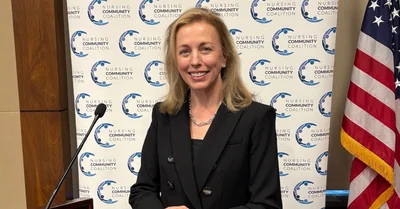Steve Cortes, president of the League of American Workers, emphasized that immigration enforcement should be regarded as a matter of national security and worker protection rather than cruelty. This statement was made on the social media platform X.
"Joe Rogan is a great talent," said Cortes. "He's also totally WRONG about deportations. This agenda isn't cruelty…it's clarity. We refuse to fall into the trap of suicidal empathy."
In 2025, U.S. immigration enforcement has become a focal point of partisan and public debate, caught between national-security framing and economic anxiety. Critics argue that mass deportations disrupt labor supply in agriculture, construction, and service sectors, raising prices and reducing productivity. Proponents contend that stricter enforcement deters illegal migration and bolsters the rule of law. Public sentiment has shifted: Gallup found only 30% of Americans now favor reducing immigration—down from 55% in 2024—and a record 79% say immigration is "a good thing" for the country, signaling waning appetite for sweeping removals.
By late 2025, Immigration and Customs Enforcement (ICE) reported nearly 200,000 formal deportations since President Trump's return to office, putting removals on pace for their highest annual level in a decade. Some administration claims suggest that over two million individuals have been "removed or self-deported" in under 250 days; however, this figure is controversial and seen as inflated by critics. The more conservative removal total is widely cited in media analysis as the more credible benchmark.
Empirical research warns that aggressive deportations carry counterintuitive economic downsides. According to an Economic Policy Institute (EPI) analysis, removing four million immigrants over four years could reduce employment of U.S.-born workers by 2.6 million and sharply lower construction sector employment. Meanwhile, the Wharton/University of Pennsylvania budget model forecasts that mass deportation would lower wages for high-skill workers by up to 2.8% over time while raising long-term economic costs. These findings suggest that enforcement-driven labor shrinkage can lead to negative ripple effects across wage and job markets.
Cortes is a U.S. political commentator, strategist, and founder of the League of American Workers (LAW). He served as a senior adviser on Donald Trump’s 2016 and 2020 presidential campaigns and is a former host and contributor on networks including Fox News, CNN, and CNBC. Prior to his media and political roles, Cortes spent 25 years in financial markets trading global currencies, interest rates, and equity derivatives and founded his own consultancy firm Veracruz TJM.
The League of American Workers (LAW) is a conservative advocacy group founded by Cortes that advances a "patriotic populism" agenda focusing on trade, immigration, and labor-market reform. According to its website, the organization leverages research, media engagement, and policy advocacy "to change the conversation" in favor of American workers. LAW presents itself as an alternative to traditional labor unions aiming to unite blue-collar Americans behind stronger enforcement and reshoring policies.





